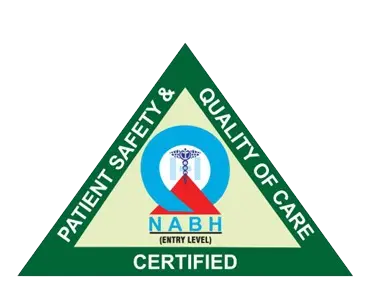Sufficient sleep plays a very important role in the proper functioning of organs and brain. Every organ needs time to repair itself for the next day. Hence it is always advised by the best general physicians in Lucknow, to get an 8-hour sleep in a day.
Lack of sleep can affect your lifestyle very badly. Staying sleep-deprived can cause digestive issues, lack of concentration, poor retention, mood swings, and laziness.
It is very important for teenagers, youngsters, adults, and senior citizens to properly plan and follow their sleep schedule so that they can stay active and energetic.
You are fortunate if you do not have any sleep disorder because people struggling with sleep disorders are not able to live a normal lifestyle.
What are Sleep Disorders?
Sleep disorder is a condition where the quality, timing, and duration of sleep get affected and disturbed. These disorders disturb sleeping patterns leading to difficulty in falling asleep, staying asleep, or achieving restorative sleep. There are multiple types of sleeping disorders which have
Types of Sleeping Disorders
Insomnia
Insomnia is a very common disorder found in many individuals. Insomnia is characterized by difficulty in falling asleep, staying asleep, or both. It can be short-term and even long-term.
Symptoms
- Difficulty in falling asleep despite being tired
- Waking up frequently during the night
- Waking up too early and not being able to fall back asleep
- Feeling lazy at the time
- Irritability, mood swings, low concentration
Causes
Insomnia can be caused be caused due to various factors affecting all at once such as:
- Stress
- Anxiety
- Depression
- Medical conditions
- High caffeine intake
- Irregular sleep schedules
- Poor sleep environment
Treatment
Insomnia involves both non-pharmacological and pharmacological approaches, some are mentioned below:
-
- Behavioral therapy: Cognitive Behavioural Therapy (CBT-I) is a highly effective therapy since it focuses on changing the thoughts and behavior of the individuals that are causing him/her sleep problems.
- Sleep Hygiene: Practice good sleep habits for a comfortable sleep. Establish habits such as maintaining a regular sleep schedule, creating a comfortable sleep environment, and avoiding the intake of sleeping pills.
- Medications: In some cases, medications are prescribed by the doctors of the best hospital in LDA colony to manage and regulate sleep patterns.
Sleep Apnea
Sleep Apnea is a serious sleep disorder where breathing repeatedly stops and starts during sleep. There are two types of sleep disorders.
- Obstructive Sleep Apnea (OSA): This one is the more common type of where throat muscles relax.
- Central Sleep Apnea (CSA): In this type brain fails to send proper signals to the muscles that control breathing.
Symptoms
Here are the symptoms of Sleep Apnea;
- Loud snoring
- Gasping for air during sleep
- Waking up with a dry mouth or headache
- Excessive daytime sleeplessness
- Lack of concentration
Causes
Sleep Apnea can be caused due to many factors such as anatomical factors which include, a large tonsil or a narrow airway, age, family history, and hypertension
Treatment
Since there are two types of sleep Apnea, the treatments are also dependent on the types and their severity on the individual.
- Continuous Positive Airway Pressure (CPAP): In this procedure, a mask is worn over the nose or mouth during sleep, which delivers air pressure to keep the airway open.
- Oral Appliances: These dental devices help reposition the jaw and tongue to keep the airway open.
- Surgery: In some cases, where the severity level is much higher, surgical procedures are carried out to remove the access tissue that is blocking the airway.
Restless Legs Syndrome (RLS)
This is a neurological disorder characterized by an uncontrollable urge to move the legs because of an uncomfortable sensation in the legs. The symptoms get worse at the time of night or during periods of rest.
Symptoms
Symptoms of restless legs syndrome are as follows:
- Urge to move the legs
- Uncomfortable sensations such as crawling, itching, or tingling
- Involuntary leg movements during sleep.
Causes
There is no exact cause of RLS but there are ascertain factors that can make the individual move legs, such as iron deficiency, kidney failure, pregnancy, peripheral neuropathy, etc.
Treatments
By following these methods RLM can be reduced and sleep quality can be improved
- Lifestyle changes: Regular exercise, a healthy diet, and avoiding caffeine and alcohol can help in good sleep.
- Medication: Doctors can prescribe various medications such as s pramipexole or ropinirole to reduce the symptoms.
- Iron supplements: Since one of the causes of RLS is iron deficiency, iron supplements can be taken as per prescription to maintain the iron level in the body.
Narcolepsy
It is a chronic neurological disorder characterized by excessive daytime sleepiness, uncontrollable episodes of falling asleep during the day, and a disturbed sleep cycle during nighttime.
Symptoms
Symptoms of narcolepsy include hallucinations, sleep paralysis, sudden loss of muscle tone, disrupted nighttime sleep, and excessive sleepiness during the day.
Causes
The causes of narcolepsy are deficiency in the brain chemical hypocretin, which regulates wakefulness and REM sleep
Treatment
The treatment of narcolepsy mainly focuses on managing symptoms and improving wakefulness.
- Stimulant Medication: these medications are given to reduce the weakness felt during the day.
- Selective Serotonin and Norepinephrine Reuptake Inhibitors (SSNRIs): Antidepressants like venlafaxine or atomoxetine may be prescribed to help manage symptoms of cataplexy and improve sleep quality.
Conclusion
Sleep should not be taken lightly, it is a part of a healthy lifestyle. It is essential to understand the causes of sleep disorders and their treatments so that guardians as well as individuals suffering from these disorders can take necessary actions to reduce the effects of these disorders. A good quality sleep can itself make your body much healthier without any medical treatment or medication, hence it is crucial to follow a good sleeping schedule.




